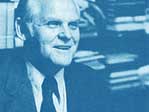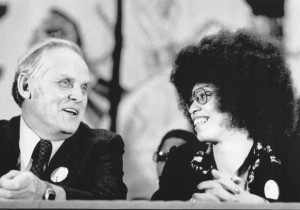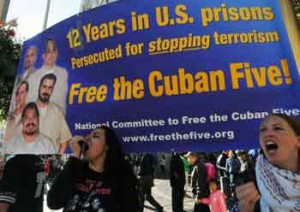- http://mltoday.com/work-in-the-two-party-system
Editors’ Note: A reader called our attention to an article by William Z. Foster. Despite some old-fashioned terms here and there, sixty five years after its publication, it has a remarkable echoes in present-day politics and debates in the union movement.
By William Z. Foster
Political Affairs, January 1959
It is a peculiarity of the American labor movement that the trade unions have no mass Labor Party, or other mass party. For many years past, for well over half a century, in fact, they have concentrated their political work heavily upon voting for the policies and candidates of the two old bourgeois parties, Democratic and Republican, with the emphasis on the former.
The general result is that the workers as a whole, following variations of the Gompers “reward your friends and punish your enemies” policy, have remained deplorably weak politically. They have had very little representation in the various governmental bodies, their political policies are inadequate and sketchy, and their understanding of the class struggle is heavily tinctured with bourgeois illusions.
On the other hand, the various radical parties (and there are several of them) are frustrated in their growth and are essentially sects. This process has gone on until the present day, when the so-called two-party system is deeply entrenched in the labor movement, and the workers have built up much political machinery in all the key industrial states within the framework of the Democratic Party.
Throughout the bulk of these years, the Left parties generally followed the policy of attempting to build independent mass parties (they originally got this idea from the German Socialist Party over two decades before), instead of working with the masses. For many years, up until the latter 1930’s, this was also the definite policy of the Communist Party, which had inherited it from its forerunners.
The result was a serious split in the ranks of the working class, with almost the entire Left on the sectarian end of the split, and defending it with all sorts of so-called revolutionary arguments; while on the other hand, most of the organized workers, who were chiefly conservative, insofar as they were politically active, supported one or the other of the two old parties. This has gone on until the present day, until now the two-party system is more marked than ever.
The Communist Party, with its Marxist-Leninist spirit and policy, was the first of the several Left parties (except for the scraggly policy of the Socialist Party) to begin to make a break with this long-prevalent policy of having no truck whatever with the two-party political system, regardless of the isolationist consequences of their attitude.
In the latter 1930’s, when the CIO began to develop, the Communists, who were in working alliance with the progressive or middle group in the CIO unions, began to participate in PAC and in the manifold working-class formations inside the Democratic Party, supporting certain candidates, advancing policies, etc. This continued on a large scale in the CIO unions, with the Communists as participants in the political work, until the split of 1949 (with the partial exception of the American Labor Party period).
The weakness of the Communists in this work, however, was that they did not theorize it, and undertook it only half-heartedly. Undoubtedly, this active participation in the workers’ formations within the two-party system was one of the major factors in the building of the mass strength of the Communist Party during the 1930’s and 1940’s.
In 1948, the Communists made a partial and disastrous departure from their policy of working within the framework of the two old parties, by the establishment of the independent Progressive Party. The formation of this party was one of the most serious errors made by the Party during the entire period. This isolationist policy pulled large numbers of members out of the Democratic Party, and most of them never returned; it also broke up the Left-Center alliance in countless unions.
The weakening of the work of the Communists in this vital branch of mass political activity was hastened by a series of events of the period: by the Browder revisionism of 1943-1944; the Progressive Party split of 1948; the split of the CIO in 1949; the Party mistakes, both Left and Right, of the 1940’s and 1950’s; and the revisionist Party crisis after 1955.
The development of revisionism had definitely as one of its major results the weakening of the Party work in the old political parties, characteristically, the revisionists had their eyes focused on the Right-sectarian bastardization of the slogan of the united party of Socialism, and the prevention of the Party from getting into real mass work.
The Two-Party System
The great bulk of the workers support the two old party tickets, with two-thirds or more supporting the Democratic Party, and hardly one-third, if that, supporting the Republican Party. In the recent November election, of the approximately 45 million votes polled by the two old parties, probably in the neighborhood of 20 million or more were cast by workers, with another 10 million or more cast by farmers, Negroes, and other Labor Party elements with the usual huge majority going to the Democrats.
On the other hand, of the five independent, Left-wing parties (Communist, Socialist, Socialist-Labor, Trotskyite, and Independent-Socialist), hardly one hundred thousand votes were cast, combined, all over the United States, which obviously is not the total Socialist strength in this country.
This shows at a glance that the enormous majority of the workers, insofar as they vote at all, are voting the two old tickets. It also indicates that the main electoral mass work of the progressives, as things now stand, lies within the scope of these two mass parties, which control the election vote of the great toiling masses. And of course, these two parties are the controlling parties of the government.
In the work of the progressives, functioning in the unions and mass organizations, within the two old parties, consideration should be given to the following:
The Left forces should propagate their progressive program and line in the old parties, with the stress upon the one which currently contains the mass of the workers, and undertake to mobilize the workers and their allies in these parties for the eventual formation of the Labor Party at an appropriate political time.
The CP works upon the theory that it is impossible for the workers to win complete control of either the Democratic Party, or the Republican party, they being too closely controlled by the monopolists, and that eventually the workers and their allies will have to form an independent Labor Party. It is possible for labor, however, to win control of many key sections of the organization, to win some significant political concessions, and to raise important class issues, as was done in the recent election within the Democratic Party on the question of anti-right-to-work laws.
Undoubtedly, strong organization can be built up in such states where the working masses are politically active, as, for instance, Massachusetts, Michigan, Rhode Island, Connecticut, New York, New Jersey Maryland, Delaware, Pennsylvania, Ohio, Indiana, Illinois, West Virginia, California, Washington, and other states.
The progressives should actively combat all illusions among the workers and others in the old parties (without making them splitting issues) that the Democratic Party, or may it be the Republican Party, can be won as a bloc by the workers. We must focus the attention of the masses on the eventual perspective of the Labor Party, as their next big step to a mass and class political organization, without rushing into premature, split movements.
It is important for progressives to work definitely at building strong worker organization and program inside the Democratic (and where possible, the Republican) Party. This they should do in such a way as not to play into the hands of the reactionaries, who are quick to use the demagogy that the workers are out to “capture” the organization, and to carry through various political “plots.”
The workers in these parties should work firmly and persistently, and not rush hastily and without proper consideration, into splitting movements.
Reformists and opportunists of all shades have long since dabbled with political activity within the Democratic and Republican Parties. For the most part, however, they have immediately shed therewith their previous radical pretensions.
The Left-wing has worked with labor and others functioning politically through the Democratic Party (and also in the Republican Party) as early as 25 years ago and it has continued it ever since, especially since the workers began to be active in the building of the CIO.
The difficulty of the Left at the time was that it did not clearly theorize its course in the old parties. The general result was that its work was spasmodic and sketchy, and it made many needless and harmful opportunist and Left-sectarian mistakes. When it realizes clearly where its political action can take them, such errors and lost motion can readily be avoided.
In this general work, the Left must especially seek to cooperate with the middle or progressive group of workers and their leaders. Many conservatives are now displaying a measure of political activity, and they should be worked with; but the center forces are vastly more active and effective, both in their program and their organizational work.
The Labor-Negro-Farmer Party
The Communist Party should orient (as it has done for the past 40 years, not always too clearly) upon the proposition that the American working class will eventually free itself from the bourgeois control of the two-party system, and build a mass party of its own. This, as American labor history indicates, probably will eventually take the form of a combination of workers, Negroes, farmers and petty-bourgeois elements. These will comprise a large majority of the American people as a whole, and such a party would have the potential of securing a majority in the elections on an anti-monopoly program.
The formation of the Labor-Negro-Farmer Party (whatever its eventual popular name may be) in the United States, would mark a huge step forward for the American working class and its allies. It would enormously increase their representation in innumerable governmental institutions, as well as facilitate in general their political fight, and clarify their understanding in the class struggle.
The Labor Party in the United States will probably not have, certainly at first, a Socialist program owing to the non-Socialist ideology of the American working class. The Communists, however, should actively propagate Socialism in all their Labor Party work. Under no circumstances should this point be neglected. But Socialism should not be presented as a splitting issue.
We should not assume, also, that the development of the Labor Party in the United States will be directly parallel with that of Great Britain. The work of the Left in the two old parties, for the Labor Party, should be characterized by firmness, persistence, and resolute advocacy of the Labor Party. It should not be made the object of thoughtless and light-minded splitting movements.
The building of the Labor Party will undoubtedly represent a serious struggle and cover various phases. Past experience shows that many working class organizations will be built up in the process within the ranks of the old parties. Examples of this are the AFL and CIO, COPE and PAC. A number of other organizations will develop.
This was the case with the old Progressive Party, the Commonwealth Federation, the EPIC movement of California, state and local Farmer-Labor Parties, etc., in the past. At the present time there are the workers’ independent organizations in Michigan, and many other forms in other states. All these should be supported, bearing in mind the need to avoid useless, harmful and premature splits.
A special form of intermediate organization developed between the building of primitive formations within the old parties, and the formation of a definite Labor Party; this was the American Labor Party in the State of New York. Such organizations, while actively striven for, should not be organized until there is the proper groundwork. The life experience of this organization, which has been but little studied by working-class leaders, should be carefully gone into.
In the Labor Party work, inside of the old parties and independently, a major effort should be concern with dovetailing the work in both spheres. This was one of the strong points of the earliest years of the New York ALP. The workers in the ALP could work in complete harmony with their brothers and sisters who had not yet taken similar steps by breaking with the old organization and setting up an independent organization.
In the Labor Party work, in all stages, it must not be forgotten that the trade-union movement is the backbone of the Labor Party. Consequently, all organizations looking to the strengthening of the movement must have a solid core of organized labor strength.
Especially is this the case when the movement reaches the point of actually forming the Labor Party. It is impossible to establish an effective Labor Party movement without a solid trade-union foundation. This the workers have experienced time and again in their several generations of effort to create the Labor Party.
When the situation is deemed ready for the formation of the Labor Party, as nearly as possible the whole labor movement must be involved. A characteristic attempt to form the Labor Party without a solid trade-union backing was the Progressive Party of 1948.
In the labor movement, it is important that the principle of independent action be established so that labor and its allies shall not be controlled by hostile class elements. There should be active campaigns begun to establish working relations between all the anti-monopoly elements, which could eventually come to make up a Labor Party.
The membership of the Labor Party should be based upon the affiliation of organizations as well as the formation of groups on the principle of individual membership. The Communist Party would seek affiliation with the Labor Party, but it would not let this become a splitting issue.
The Communist Party
The Communist Party must be actively built in every phase of the Labor Party movement to create the organization of the workers in the major parties, to build the Labor Party, and to fulfil the thousand and one tasks that the Party confronts in the class struggle. We must remember that the independent role of the working class is the ultimate status we are driving at, and that hence the importance of the Communist Party must not be underestimated.
The Communist Party, with its Socialist objective, should operate on the principle of the Vanguard Party, and play an independent role. Its members should permeate every phase of the Labor Party work. It should strive to win all the other Left forces to its Labor Party policy. The entire Left and radical movements should have one a substantially unified policy.
In general, the CP should oppose the putting up at this time of general Left-wing election tickets, covering all offices. Such a tactic puts the Left forces in direct opposition with the body of the workers who are still supporting the Democratic Party. So far as possible, the various branches of the movement, old parties, Labor Parties and independent tickets, should dovetail with one another.
Independent tickets should be put up, both of a general and specific character; but so far as practical, these should be directed against reactionary elements on the old part tickets. Above all, the Labor Party movement must aim at a unified strategy throughout all its phases.
The CP should take an energetic stand against useless splitting tactics on all levels of the movement. It cooperates freely with other Left forces, but it does not support them in splitting tactics which conflict with the interests of the workers. The CP at all times should retain full freedom to propagate its Labor Party policy, as well as its general line. It combats illusions of the workers as to the permanency and other alleged benefits of the two-party system.
In keeping the Labor Party issue to the fore at all times, the CP should make no agreements with other parties soft-pedalling this issue. It shall not, however, introduce the Labor Party issue into any given situations regardless of the effects it may have upon the general movement.
The system of election primaries, as well as all other such machinery, need to be fully utilized, to see to it that workers and Negroes are nominated in greater numbers on the old party tickets.
The CP should carry on a permanent and active educational campaign for the Labor Party.
During the course of the history of the labor movement, there have been numerous issues upon which the Left-wing forces found themselves taking a very different line from that followed by the masses. Often this could be corrected, to the general profit of the labor movement and also of its most advanced sections.
It has fallen to the task of the Communist Party, to have corrected some of these sectarian errors. Now it is necessary that this whole matter of electoral policy be very deeply probed and analyzed, and clearly stated.
It is high time that this was done. The Party needs to probe the entire political situation, especially all its two-party system aspects. The Party should examine its own experience, as well as that of others, in this matter, and draw all necessary conclusions.
It is fitting that the Communist Party, as it has done on many other occasions, should take the vanguard position in bridging the gap between the electoral work of labor, functioning in the Democratic Party, and that of the independent Left.
If this is done promptly and well, it will mean the material strengthening of the Party and the general labor movement in many respects














